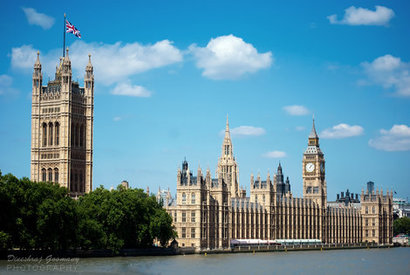
The government believes that electric technologies can be much more efficient than fossil fuels, while also reducing the need for fossil fuel imports, which in turn will also make the country more resilient to supply and price volatility on international energy markets. The government’s Invest 2035 consultation found that energy prices and grid connection delays are competitive industrial activity and increased electrification, while the prevalence of gas in the energy mix makes it harder for businesses to plan and invest.
To resolve this situation, the government is offering price relief through its British Industry Supercharger for the most energy intensive businesses and resolving grid connection challenges for energy generation and demand projects.
The Clean Energy Superpower Mission entails a long-term plan to increase energy security and reduce electricity bills by investing in clean energy and improving UK connections to the EU energy market.
Sector Plans will set out how sectors can work in partnership with the government to exploit growth opportunities, for example by scaling net zero transport through battery innovation and EV manufacturing, production of sustainable aviation fuel (SAF), embedding sustainability across the economy by supporting Environmental, Social, and Governance (ESG), investing in creative industries that are investing in net zero – such as Liverpool’s innovative MusicFutures R&D Cluster and introducing smart data reforms to enable data-driven innovation.
The government is planning to use smart technology to boost grid flexibility thus further adapting the grid to the influx of more renewable energy, while also making the grid more resilient and driving down costs. It is also focused on turning the country into a global clean energy and climate champion, driving the energy transition and opening up markets for British clean energy and low-carbon goods and services.
The UK is leading the Global Clean Power Alliance, a forum that aims to address supply chain challenges. Part of its role is to identify critical changes needed to diversify clean energy supply chains, including driving investment and addressing bottlenecks.
The UK is already working with Japan, since March this year, in an Industrial Strategy Partnership focused on collaboration in offshore wind.
Great British Energy (GBE) will work with the National Wealth Fund to provide strong development and finance support as developer and bank, with an initial £300 million already identified for investment into domestic offshore wind supply.
A new Workforce Strategy will be published by the Office for Clean Energy Jobs this year, utilising Britain’s existing energy workforce to create more good jobs across the country. A new regional skills pilot in Clean Energy Industries in Aberdeen will fund skills support.
The strategy is particularly focused on onshore wind and fixed bottom and floating offshore wind, carbon capture usage and storage, hydrogen and heat pumps. The government’s interventions, to this end, will include a new £1 billion Clean Energy Supply Chain Fund, under the direction of Great British Energy (GBE), particularly focused on offshore wind supply chains, and a £544 million Clean Industry Bonus for offshore wind developers. The government has also confirmed £13.2 billion of funding for its Warm Homes Plan and it will shortly launch a further round of the Heat Pump Investment Accelerator Competition, which provides grants to manufacturers investing in new heat pump capacity.
These are just a selection of a wider range of measures to be introduced under the strategy to further support UK clean energy growth. You can view the full Industrial Strategy document here.
“This is a landmark moment” said Laith Whitwham, Senior Policy Advisor at the climate think tank E3G. “After years of delay, the government has stepped up with a serious industrial strategy that backs clean energy and our industrial heartlands. This strategy cuts the sky-high electricity prices driven by gas dependency and gives British industry the shot in the arm it needs to lead the charge to a clean economy.”
“As a UK manufacturer at the heart of the electricity supply chain, it’s a huge confidence boost to see a firm commitment to strengthening the sector that keeps the country powered” added Jon Hiscock, CEO of UK electrical equipment manufacturer Fundamentals. “This is a vital industry, central to economic growth, energy security and decarbonisation. We’re encouraged by the roll out of the Connections Accelerator Service. Speeding up grid access for strategically important projects is exactly what our industry needs to drive innovation and modernise the grid. However the UK's ageing electricity network was never designed to handle the kind of power flows that come from decarbonisation. Turning ambition into delivery will be the real test. We’re also optimistic about the direction of wider electricity‑market reforms, including a final decision on zonal pricing. This could be a promising step toward smarter, fairer power markets. And the Growth & Skills Levy is a smart move. It’s how we turn ambition into the practical skills industry desperately needs. What will make this a success is ensuring these opportunities reach every young person and help fill critical gaps in engineering and the clean energy economy.”
For additional information:

